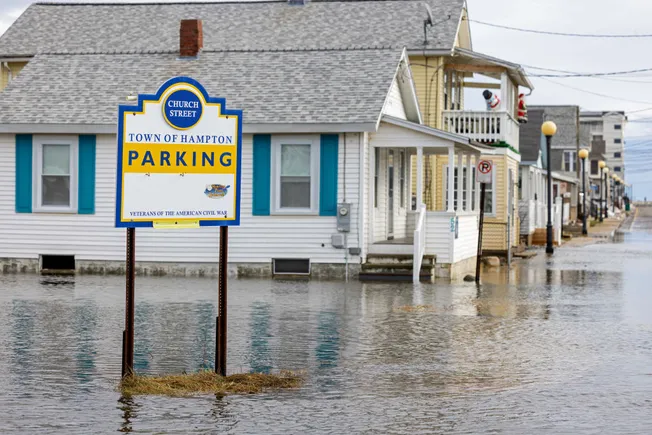Last year, FEMA responded to 100 disasters, provided approximately $12 billion to communities and states for disaster recovery and $1.3 billion to survivors of disasters. With three months remaining in 2024, 150 disasters have already been declared in the U.S., and more are anticipated.
In the wake of last month’s Hurricane Helene, FEMA received $20.3 billion for its Disaster Relief Fund. The total damage caused by Helene won’t be known for months, but current projections estimate the damage cost will likely reach $35 billion. Also still unknown is the amount of devastation wrought by the monster storm Hurricane Milton, which made landfall in Florida on Wednesday.
It’s clear that climate change has wreaked havoc on many parts of the country.
As government leaders prepare for even more disasters, there are hundreds of preparedness and resiliency projects throughout America already underway or almost ready to launch. In 2025 there will be even more preparedness projects along with all the cleanup efforts that will be underway. Disaster relief services will be in extremely high demand.
Here are some of the most pressing resiliency projects currently underway:
Texas: Commissioners in Harris County, Texas, have announced a disaster recovery and preparedness initiative designed to mitigate flood risks in the Vince Bayou Watershed. Improving flood management in that area will support recovery from past floods and improve resilience for future natural disasters such as hurricanes.

Mary Scott Nabers
Permission granted by Mary Scott Nabers
The area is particularly vulnerable to flooding because of its flat topography and frequent exposure to extreme weather events. The project, funded through a $15 million bond, will be designed to improve stormwater detention and channel conveyance systems. Four construction alternatives are under consideration, with cost projections range from $11 million to $24 million. Construction is expected to begin in 2025.
Maryland: Officials in the coastal town of Crisfield, Maryland, are planning a major flood mitigation project to protect the area from tidal waves and storm surges. With the support of $36 million in federal funding, the project’s objective will be to safeguard the area by constructing a tidal flood protection barrier and improving the existing internal drainage system.
Crisfield faces increased flooding risks due to rising sea levels and frequent extreme weather events so the components of the effort will include elevating key roads and bulkheads, installing tide gates and restoring wetlands to serve as natural stormwater storage systems. When delivered, the project will provide protection for a 3.5-foot storm surge initially, along with capacity to guard against 5-foot surges in the future as part of a futureproof strategy. Construction is expected to begin in 2025.
New Hampshire: A $20.26 million reconstruction project to rebuild seawalls and revetments to protect a coastal roadway between North Hampton and Rye, New Hampshire, will be launched. The area currently suffers from rising sea levels and the increasing frequency of coastal storms.
The effort will be designed to ensure that the critical artery remains open during extreme weather events. Approximately 3.2 miles of vulnerable roadway will be worked to strengthen the region’s overall climate resilience and reduce the need for post-storm cleanup efforts. The project is currently in the design and permitting phase, and construction contracts are likely to be awarded in 2025.
Mississippi: A $20.19 million floodplain restoration project in Mississippi will use natural infrastructure to restore 1,516 acres of wetlands and riparian forests. The objective will be to protect I-40, I-55, two freight rail lines and a pedestrian and bicycle bridge that converge in the floodplain of the Mississippi River. The project will also address long-term climate resilience.
With frequent Mississippi River flooding, the elevated routes face increasing risks from floodwaters over 10 feet. Embankments and bridge footings are vulnerable to shear stress, wave action and scour. The result will reduce flooding, improve ecosystem health and prevent erosion. Construction is expected to begin in 2025 and be complete by 2028.
Delaware: A $23 million bridge resilience project that will address rising sea levels and frequent flooding is planned for Townsend, Delaware. It will replace the 60-year-old Taylors Bridge over Blackbird Creek and raise the surrounding roadway to accommodate a 3-foot rise in sea levels.
The bridge is affected by frequent storms, with increased flooding and storm surges causing erosion and damage to the approach roads. When the work is completed, the bridge will have more height, which will reduce the effects of sea level rise and climate change.
The project will include reducing the number of bridge piers from nine to three to improve water flow, expanding road shoulders, widening sidewalks and installing retaining walls to protect surrounding wetlands. The new 440-foot bridge will have a four-span precast concrete superstructure, supported by reinforced concrete piers and abutments, ensuring resilience against future storm impacts and sea-level rise. The project will also ensure travel access and protect a scenic segment of the Delaware Bayshore Byway.
California: A bridge in Val Verde, California, will be upgraded to avoid structural damage in case of an earthquake. The existing bridge does not meet seismic safety standards, and it could collapse in the event of a significant earthquake. The community has experienced recent earthquakes, making the project a time-sensitive necessity.
The $7.5 million project will reinforce the bridge by installing catcher blocks, concrete infill walls and small-diameter piles under an existing footing to reinforce the foundation. The project is currently in the planning stage and construction is slated for 2025.
FEMA’s disaster relief fund provides most of its funding to cities and states, but individual survivors are also compensated. Cleanup efforts, along with preparedness projects for future disasters, have already created a massive amount of work that must be done quickly. Companies with these types of service offerings will continue to be in extremely high demand in America.

